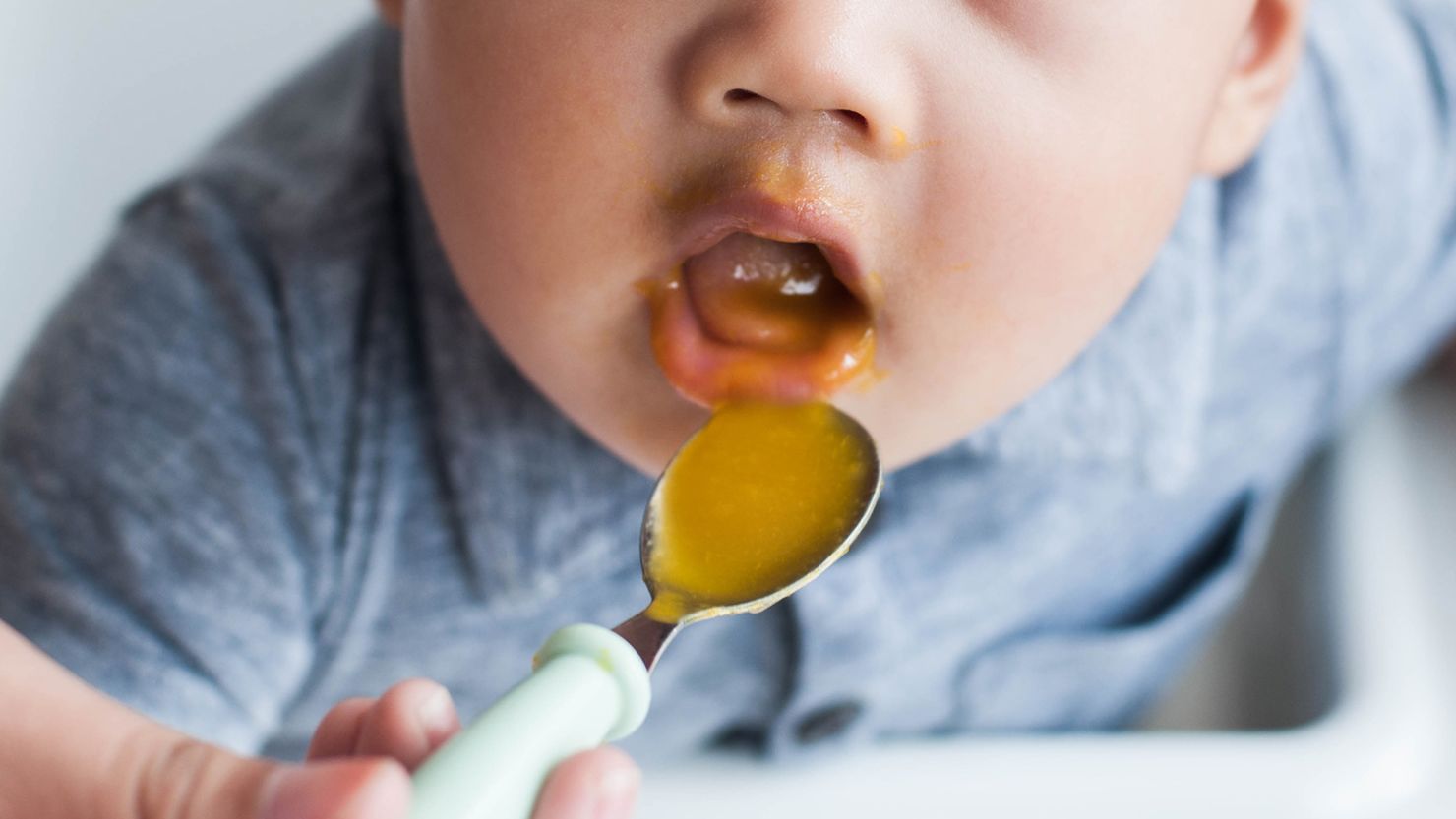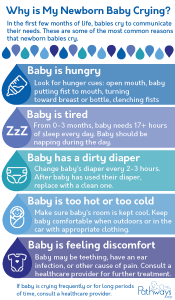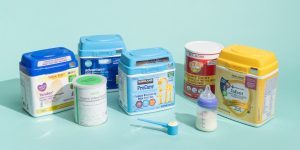Baby foods can contain toxic heavy metals, which can be harmful to infants. This article will provide information on the presence of these metals and the potential risks they pose.
Baby foods are a staple for parents with infants, providing them with essential nutrients and aiding in their growth and development. However, recent studies have revealed a concerning issue – the presence of toxic heavy metals in some baby foods.
Heavy metals, such as arsenic, lead, cadmium, and mercury, are naturally found in the environment but can pose serious health risks when consumed in excessive amounts. These metals can accumulate in the body over time and potentially affect a child’s cognitive development, behavior, and overall health. We will explore the sources of heavy metals in baby foods, the potential risks they present, and what parents can do to minimize exposure.
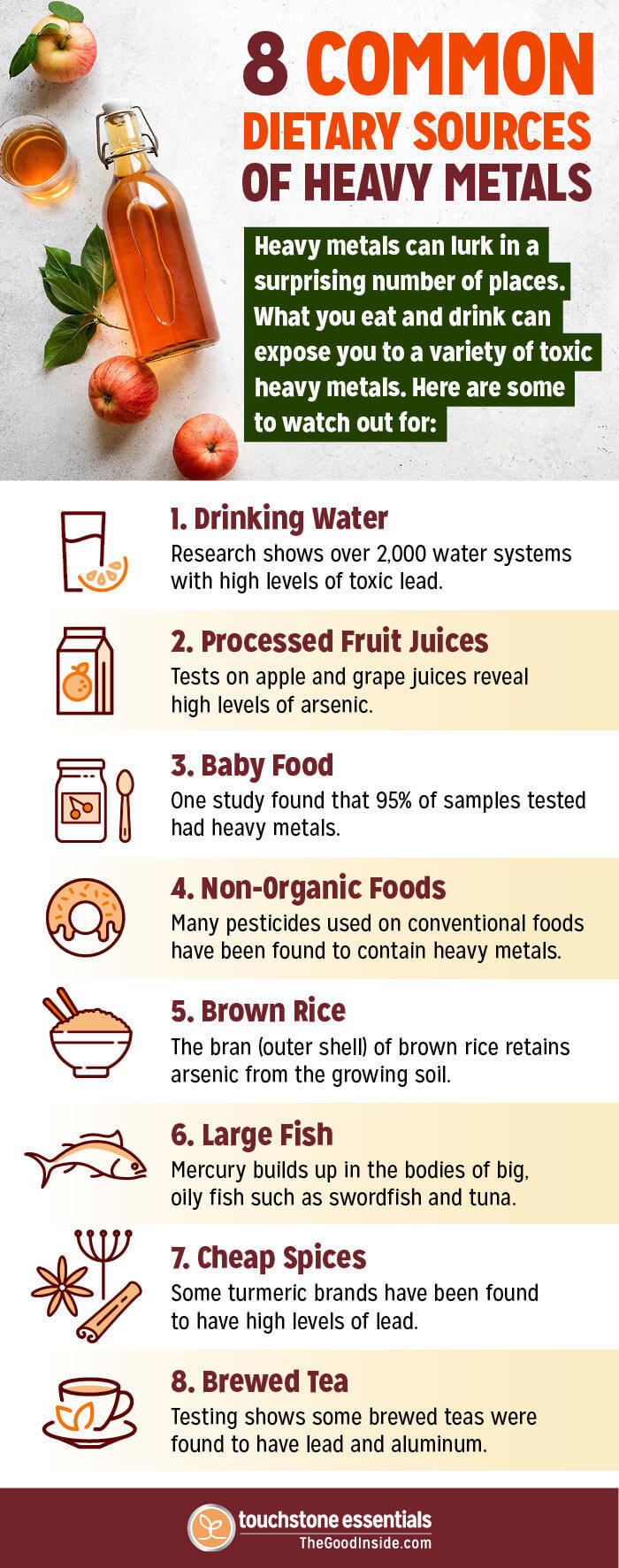
Understanding
Toxic heavy metals are a type of metal that can accumulate in the body over time, leading to potential health risks. These metals include lead, arsenic, cadmium, and mercury, all of which are highly toxic even in small quantities.
These heavy metals can be found naturally in the environment, but they can also enter our bodies through various sources, including contaminated water, food, air pollution, and occupational exposure.
Heavy metals can find their way into our food supply through various sources:
- Soil contamination: When crops are grown in soil that has been contaminated with heavy metals, such as from industrial pollutants or improper waste disposal, the plants can absorb these metals and pass them on to the food we eat.
- Water contamination: Industrial activities, mining, and improper waste disposal can contaminate water sources with heavy metals. Fish and shellfish, in particular, may contain higher levels of heavy metals due to bioaccumulation.
- Food processing and packaging: Certain food processing techniques or the use of contaminated materials in food packaging can introduce heavy metals into the products we consume.
Exposure to toxic heavy metals can pose significant health risks:
- Neurological problems: Lead and mercury, in particular, can negatively impact the development of the nervous system in young children. This can lead to learning disabilities, behavioral issues, and cognitive impairment.
- Organ damage: Cadmium and arsenic are known to cause damage to the kidneys, liver, and other vital organs when accumulated in high amounts.
- Cancer: Prolonged exposure to certain heavy metals, such as arsenic, cadmium, and lead, has been linked to an increased risk of developing various types of cancer.
- Developmental delays: Heavy metals can interfere with normal growth and development in infants and young children, potentially causing delays in physical and cognitive milestones.
It is crucial to be aware of the potential health risks associated with exposure to toxic heavy metals and take necessary precautions to minimize their presence in our lives.
Investigation Findings
The investigation findings on toxic heavy metals in baby foods have raised significant concerns among parents and healthcare professionals. The presence of these metals in popular baby food brands has prompted urgent calls for action to ensure the safety of infant health. This section provides an overview of the study, details the types and levels of toxic heavy metals found in popular baby food brands, and discusses the implications of these findings on infant health.
Overview Of The Study On Toxic Heavy Metals In Baby Foods
The study conducted on toxic heavy metals in baby foods aimed to assess the prevalence and concentration of these contaminants in various products available on the market. A comprehensive analysis was carried out, examining a wide range of baby food brands and their ingredients. The study examined samples from different food types, including pureed fruits and vegetables, cereals, and snacks specifically designed for infants.
Researchers followed strict protocols to ensure accurate and reliable results. Samples were tested using advanced laboratory techniques capable of detecting even minute levels of toxic heavy metals. The study aimed to identify potential sources of contamination and provide insights into the risks associated with consuming such foods during early development.
Types And Levels Of Toxic Heavy Metals Found In Popular Baby Food Brands
The investigation revealed the presence of various toxic heavy metals in popular baby food brands. These metals include arsenic, lead, cadmium, and mercury, which are known to have detrimental effects on human health, especially in developing infants. The levels of these metals varied across different food types and brands.
Arsenic, a known carcinogen, was found in detectable amounts in all tested samples. Although it exists in both inorganic and organic forms, the inorganic form is more harmful and can accumulate in the body over time. Lead, a neurotoxicant, was also detected in notable amounts, with certain brands consistently showing higher levels. Cadmium, linked to organ damage and impaired neurodevelopment, was found in some samples, particularly those derived from plant-based ingredients. Mercury, known for its harmful effects on the nervous system, was detected in select samples as well.
It is important to note that while these toxic heavy metals were present, the levels varied across different food types and brands. Some products contained higher concentrations than others. However, even low levels of exposure to these contaminants can pose risks, particularly in infants who are particularly vulnerable to their effects.
Implications Of The Findings On Infant Health
The findings of the investigation have significant implications for infant health. The toxic heavy metals identified in popular baby food brands have the potential to contribute to various health issues, including impaired cognitive development, damage to organs and systems, and increased susceptibility to certain diseases. Infants are more vulnerable to toxins due to their faster growth and developing metabolic systems.
Long-term exposure to toxic heavy metals can have lasting effects on the overall health and well-being of children. Hence, it is crucial to address this issue and take immediate action to reduce the exposure of infants to these contaminants. Manufacturers, regulatory bodies, and healthcare professionals need to work together to establish stricter testing protocols, set stringent limits on toxic heavy metal content in baby foods, and ensure improved transparency in labeling. Parents should also remain vigilant in selecting baby food options and consult healthcare providers for guidance on safe alternatives.
Regulatory Gaps And Industry Practices
When it comes to ensuring the safety of our little ones, every parent wants to make sure they are providing the best possible nutrition. However, recent studies have raised concerns about toxic heavy metals found in baby foods. These metals, such as arsenic, lead, cadmium, and mercury, can have long-term negative effects on a child’s health and development.
Current Regulations Regarding Toxic Heavy Metals In Baby Foods
When it comes to regulating the presence of toxic heavy metals in baby foods, the current efforts are falling short. While government agencies like the Food and Drug Administration (FDA) have set some limits and guidelines, there are still major gaps in their approach. These gaps leave room for potentially harmful levels of heavy metals in baby foods. The lack of strict regulations is a significant cause for concern among parents and health experts alike.
Lack Of Mandatory Testing And Labeling
A notable issue within the industry is the lack of mandatory testing and labeling requirements for baby foods. While companies may voluntarily test their products, this practice is not universal. Without mandatory testing, it becomes challenging to ascertain the presence and levels of toxic heavy metals accurately. Additionally, the absence of clear labeling requirements makes it difficult for parents to make informed choices about the products they purchase for their babies.
Furthermore, different states may have varying regulations, leading to a lack of uniformity across the industry. This lack of consistency only exacerbates the confusion surrounding the safety of baby foods and the presence of toxic heavy metals.
Industry Practices And Responsibility
The responsibility of ensuring the safety of baby foods falls both on the industry and regulatory bodies. The food industry plays a crucial role in adhering to rigorous testing practices and ensuring their products meet the highest safety standards.
Companies have a responsibility to conduct regular and thorough testing to detect and eliminate toxic heavy metals in their products. This includes implementing strict sourcing standards and manufacturing processes to minimize the risk of contamination. Clear and accurate labeling must also be prioritized to empower parents with the knowledge they need to make informed decisions about the foods they purchase for their little ones.
Regulatory bodies, on the other hand, need to strengthen their oversight and regulatory framework. They must establish more comprehensive and stringent guidelines that leave no room for ambiguity. Mandatory testing and labeling requirements should be enforced, ensuring uniformity and transparency across the industry. This will not only protect the health and well-being of our children but also instill confidence in parents who rely on baby foods for their little ones’ nourishment.
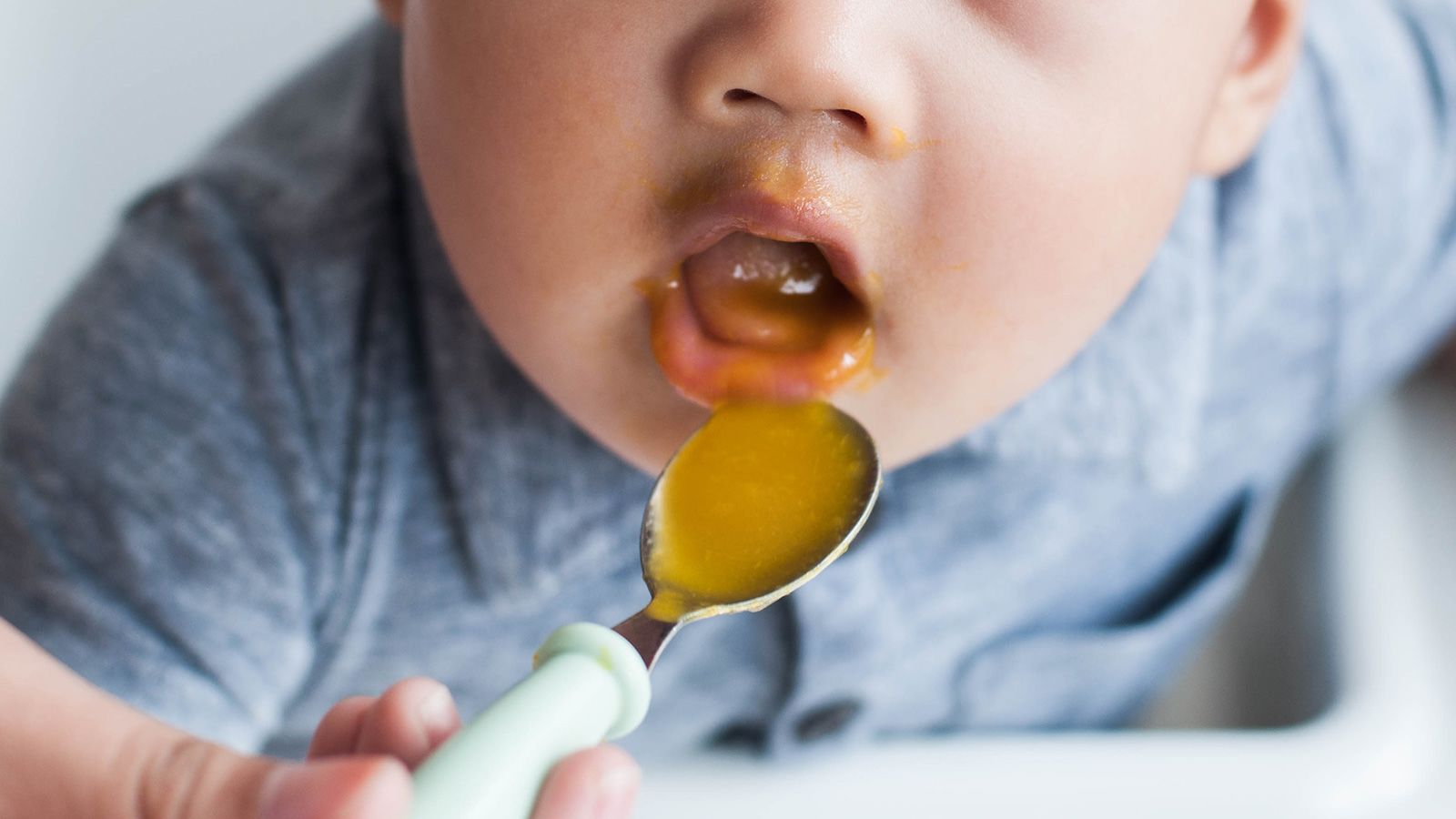
Protecting Babies: Steps For Parents And Authorities
As parents, protecting our little ones is always a top priority. From the moment they take their first breath, we strive to provide them with a safe and nurturing environment. However, recent concerns about toxic heavy metals in baby foods have raised alarm bells among parents and authorities alike. The presence of these harmful substances in popular brands of baby foods has sparked an urgent need for action. In this blog post, we will explore steps that both parents and authorities can take to protect our precious babies.
Tips For Minimizing Exposure To Toxic Heavy Metals In Baby Foods
When it comes to safeguarding our babies from harmful substances like toxic heavy metals, knowledge and awareness are key. By following these simple but effective tips, parents can minimize their little one’s exposure:
- Choose fresh and organic options whenever possible. Opting for homemade baby food made from organic ingredients is a great way to reduce the risk of heavy metal contamination.
- Be cautious with rice-based products. Rice tends to absorb more heavy metals from the soil, so it is essential to limit its consumption and opt for alternative grains like quinoa or oats.
- Vary your baby’s diet. Introducing a wide range of fruits, vegetables, and grains into your baby’s meals can help diversify their nutrient intake while reducing exposure to any single source of heavy metals.
- Stay updated on the latest research. Keeping abreast of news and studies regarding harmful substances in baby foods will help you make informed decisions about the brands and products you choose for your little one.
- Consider using a water filtration system. Since water can also be a potential source of heavy metals, investing in a reliable water filtration system can provide an extra layer of protection for your baby.
- Consult your pediatrician. Your child’s pediatrician can offer personalized advice based on your baby’s unique needs and help address any specific concerns you may have regarding heavy metal exposure.
Calls For Stricter Regulations And Enforcement
While individual actions by parents are crucial, a comprehensive and effective solution to the issue of toxic heavy metals in baby foods requires the involvement of authorities at the regulatory level. Here are some key steps that should be taken:
- Strengthen current regulations: Authorities need to review and revise existing guidelines on heavy metal limits in baby foods. Stricter limits must be imposed to ensure the safety and well-being of our little ones.
- Enhance testing protocols: Ramping up the frequency and scope of testing for heavy metal contaminants in baby foods should be a priority. Regular monitoring is essential to catch any potential risks and hold accountable those who don’t meet the required standards.
- Implement transparent labeling: Clear and informative labeling is crucial for parents to make informed choices. Authorities should require mandatory disclosure of heavy metal levels in baby foods, helping parents make safer decisions for their babies.
- Enforce stricter penalties: Heavy fines and other penalties should be imposed on companies that fail to comply with safety standards. This will serve as a deterrent and incentivize manufacturers to prioritize the removal of toxic heavy metals from their products.
The Role Of Parental Advocacy And Consumer Demand
As parents, we have the power to influence change through our advocacy and consumer choices. By using our collective voice and demanding safer alternatives, we can encourage manufacturers and authorities to take the necessary steps. Here’s how you can make a difference:
- Stay informed and share knowledge: Educate yourself and others about the risks associated with toxic heavy metals in baby foods. Share reliable information on social media platforms and engage in discussions to raise awareness.
- Support responsible companies: Research baby food brands that have committed to rigorous safety standards and transparency. By actively purchasing products from these companies, you support their efforts and send a message that parents demand safer options.
- Voice your concerns: Reach out to manufacturers, regulatory bodies, and elected officials to express your concerns regarding heavy metal contamination in baby foods. Use your voice to advocate for stricter regulations and enforcement.
- Join parent-led movements: Participate in parent-led initiatives, petitions, and campaigns that focus on eliminating toxic heavy metals from baby foods. By coming together, we can amplify our voices and effect meaningful change.

What Baby Foods Have Toxic Heavy Metals?
Some baby foods may contain toxic heavy metals.
Are There Toxic Metals In Baby Food?
Yes, there are potential toxic metals in some baby foods. These metals can include arsenic, lead, cadmium, and mercury. It’s important to check the labels and choose brands that prioritize quality and safety for your baby’s health.
Is Gerber Baby Food Safe 2023?
Yes, Gerber baby food is safe in 2023. Gerber ensures safety by following strict quality standards and conducting thorough testing on their products. Additionally, Gerber complies with all applicable regulations to provide safe and nutritious options for babies.
What Foods Are Toxic To Babies?
Certain foods, such as honey, raw eggs, and cow’s milk, can be toxic to babies. Always avoid feeding them these foods to prevent any potential harm or health risks.
Conclusion
Parents must be aware of the potential presence of toxic heavy metals in baby foods. Ensuring the safety and health of our little ones is a top priority. By staying informed, reading labels, and choosing organic and homemade options, we can minimize the risks associated with these harmful substances.
Let’s work together to provide the best nutrition possible for our babies.

